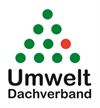
Austrian Educational Competence Centre of Biology
aeccbio.univie.ac.at/2010-jahr-der-biodiversitaet
The Austrian Educational Competence Centre of Biology at the University of Vienna is active in biology education research (one content focus is ecology, outdoor biology and biodiversity) and is engaged in teacher training at university as well as in-service teacher training all over Austria. The team of AECC-Bio (Austrian Educational Competence Centre of Biology) develops topics for biodiversity education during 2010 – the International Year of Biodiversity. Each month one topic is released. The topics and their location should be easily accessed by the students (e.g. using school surroundings) and ordered by the phonology through the year. The following structure helps the teachers and biology educators to adapt the topic for their classes: first the biological content is summarized, based on this introduction is the idea for the teaching sequence. Additionally we offer all materials needed for the teaching sequence. Central aim for designing the materials is to realize the whole range of inquiry learning by the students during one year as well as topics for all ages (K1 to K12). The materials will remain at our website after 2010.


Austria's Biodiversity Indicators (MOBI) - Austria
www.bipnational.net/IndicatorInitiatives/MOBI
The MOBI indicator set is comprehensible for decision makers and the public. It is aligned to concrete measures to conserve biodiversity. A result of cooperation with amateur biologists and laities (e.g. farmers counting species on their own land) the MOBI indicator set makes information easily available and increases public awareness.
Subject(s): Identification, Monitoring and Indicators


Centre for Plant Biodiversity Research and Australian National Herbarium - Austria
www.anbg.gov.au/cpbr
Vision
Expanding knowledge of Australian plant biodiversity knowledge, scientific excellence, leadership and innovation in plant systematics, and conservation and evolutionary biology.
Mission
To enhance knowledge, understanding, conservation and sustainable utilisation of Australia’s plant biodiversity.
Centre Goals
to be a national centre of research excellence in the fields of plant systematics and conservation biology, as a basis for conservation and sustainable management and use of Australian vegetation
to develop and manage scientific collections of Australian and related floras as the Australian National Herbarium, a permanent record of Australian plant diversity, and as a resource for research on these floras, and to provide the scientific authenticity of the Australian National Botanic Gardens.
to provide a national focus for and play a role in national botanical database management, and to represent and promote Australia internationally within the botanical database management field
to pursue research, education and training relevant to Centre programs and objectives
to ensure that the two parties add value to each other and the Centre, through their differing backgrounds and disciplines and, through the Centre, serve the parent bodies and stakeholders, including the living collections of the Parties, and
to maximise the benefits flowing from applications of Centre intellectual property
Subject(s): Research and Science

Hohe Tauern National Park
www.hohetauern.at
A wild, primeval landscape and a landscape cultivated by mountain farmers. These are the two faces of the Hohe Tauern National Park. The nature reserve encompasses sweeping, primeval Alpine landscapes, such as glaciers, rock faces and turf, as well as mountain pasture landscapes which have been carefully and painstakingly cultivated for centuries.
The Hohe Tauern National Park was established in 1981 and is therefore Austria's first National Park. During the following decades the National Park, which covers parts of the three provinces of Carinthia, Salzburg and Tyrol, developed into the largest nature reserve in Central Europe, with an area of over 1,834 km2.
Click here to discover all the activities developed by the Hohe Tauern National Park. Only in German.

Natural History Museum Vienna
www.nhm-wien.ac.at
The Natural History Museum of Vienna is one of the oldest and largest in the world. Its huge collections of biological, geological and prehistory items witness natural diversity and development. Immense scientific collections mirror biological diversity and evolutionary dynamics. Biodiversity, its mechanisms and its threats are communicated to the public by exhibitions, workshops, guided tours, excursions and publications for children as well as for adults. A pool of over 50 scientists constitutes a scientific nucleus of systematic and taxonomic research. The Natural History Museum Vienna is thus Austria´s largest institution for biodiversity research and mediation.

Naturkundliche Gesellschaft (Natural History Society)
www.nkis.info
The "Naturkundliche Gesellschaft" (Natural History Society) is a non-profit, global initiative to gather primary scientific data on biodiversity and publish them on the internet under a "creative-commons" license. NKIS provides free and unlimited access to everybody and aims in the build-up of a "network of excellence" with partners all around the world.
Taxonomy online (TaxOn) is NKIS´s taxonomical journal with barrier-free access to scientist and the public all around the world, being free of charge and providing unique online functions for authoring, reviewing and releasing scientific articles. TaxOn´s website is
www.nkis.info/taxon

Network of Biological Systematics Austria
www.nobis-austria.at
NOBIS Austria is a network for scientists working in the wide field of biological systematics – on evolutionary research, phylogeny or taxonomy – theoretically, philosophically and pragmatically. NOBIS Austria wants to promote biosystematics as a basic principle of numerous theoretical and applied biological sciences concerning all organism kingdoms. NOBIS Austria enhances biological systematics in Austria and coordinates national and international activities as it acts as a forum for interdisciplinary communication and establishes contact between the scientific community and the publicity.NOBIS Austria aspires intensive cooperation with other associations interested in similar topics, and is a member of BioSyst.EU, the European umbrella organization for biological systematics.

Research Institute of Wildlife Ecology
www.fiwi.at
The main purpose of the Research Institute of Wildlife Ecology of University of Veterinary Medecine of Vienna is to study the needs and behaviour of wild animals in ecological contexts, thus establishing the scientific basis for efficient nature conservation, animal welfare, environment protection and for sustainable agriculture, forestry, hunting, and land-use.

Umweltdachverband
www.umweltdachverband.at/themen
...r-der-biodiversitaet
The Umweltdachverband (UWD) is the umbrella organisation of Austrian environmental NGOs, representing 38 member organisations which focus on nature conservation, environment, renewable energy and sustainable development. The main issues our organisation is working on are water protection, climate and energy, agriculture, biodiversity and sustainable development. The UWD hosts the “EU-Umweltbüro” which aims at informing Austrian NGOs on EU environmental policy, the “CIPRA Österreich” (Commission International pour la Protection des Alpes) which coordinates international activities for a sustainable development of the Alps and the “FORUM Umweltbildung” – a platform for environmental education in Austria which focuses on Education for Sustainable Development for schools. Further more UWD is a partner organisation of “Netzwerk Land” which is the Austrian network for rural development. UWD is a member of IUCN, EEB, Europarc and several other international organisations and initiatives.